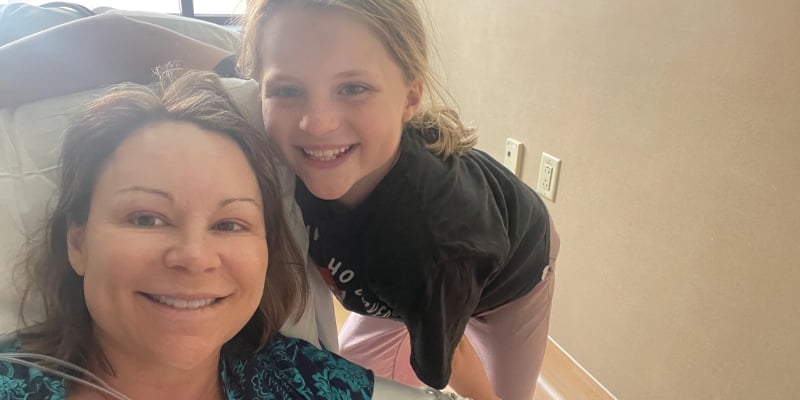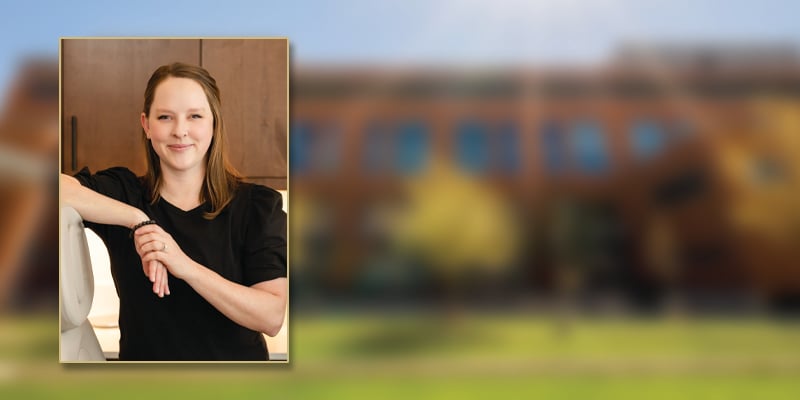Maddie Nichols, PNP was part of the first Nurse Practitioner cohort of students led by renowned inventor of the NP Profession, Dr. Loretta C. Ford in 1965. Join us as we explore her journey throughout her nursing career.
1. Tell me about what drew you to the nursing profession, your early nursing career, and your experience while attending CU Nursing.
Even when I was young and growing up in Ohio, I knew I wanted to be in the medical field. I had gone searching for nursing programs and attended Case Western Reserve University for my bachelor’s. The act of providing the care and the intimacy of the work were the elements that drew me to nursing. I graduated from Case Western Reserve University of Cleveland Ohio with a BSN in 1964 and moved to Colorado in 1965.
I and many other nurses were recruited out of public health work to enroll in the initial Pediatric Nurse Practitioner Program at the University of Colorado College of Nursing. At that time I had been working for Denver’s visiting nurses service and we were paid while going through the NP program. It was a gift to have that sort of funding at the time. Denver had some very progressive public health initiatives including wonderful wellness clinics throughout the city.
The NP program was set up as a semester of didactic instruction and a 2-year practicum. I started the PNP program in 1965. The program itself seemed like an internship; it was purposefully hands-on. Dr. Henry Silver and Dr. Loretta Ford invented and founded the Nurse Practitioner profession and program, and they were heavily involved in our education. We had team meetings like grand rounds once a month on campus and Dr. Ford and Dr. Silver would lead the discussions. Dr. Ford gained full professorship in 1965 at CU Nursing, and Dr. Silver was a faculty member at the CU School of Medicine and would later serve from 1978-1991 as the school’s Associate Dean of Admissions.
Maxine Berlinger was also incredibly memorable as a mentor. During her 31 years with the University of Colorado, she held many titles including Chairperson of Maternal Child Nursing, Assistant Dean of Graduate Affairs, Assistant Dean of Undergraduate Programming, Coordinator of Student Affairs, and Associate Director of Inpatient Services. Maxine met with the NP students to talk about our roles and how we were feeling. Most of her check-ins had nothing to do with child care. They were more about how to approach being an NP and the intricacies of the new profession. She, alongside Drs. Ford and Silver, truly helped to mentor and support us through the program.
One of the reasons the initial NP program turned out to be for pediatrics was because Dr. Ford and Dr. Silver saw the need in the community. They wanted to teach professional nurses with assessment skills to fill the gaps in the care already provided to the Colorado community.
Overall, the program was a game-changer for my life. As an NP I was able to serve in public health and practice my favorite elements of intimate nursing.
2. Can you talk a bit more about your career?
While I was working towards the NP certificate and even after receiving it, Denver was going through a war on poverty. NPs were sent to clinics across the city. It was so controversial at the time that we had to wear different uniforms depending on the clinic and areas we were sent. Sometimes I was in my public health uniform or my nursing uniform, and sometimes we were even told to wear our everyday clothes. I always kept all of my uniforms in my car because I didn’t know if I would need to travel to another location halfway through the day. This was due to the politics of the time and the opinions that some physicians held about NPs. We were called “super nurses” and were not as respected as doctors. To bring Nurse Practitioners to fruition, it took time and energy for others in the medical field to see that NPs could do what we were trained to do. Of course, there was resistance, and I know there still is to this day, but some of the doctors I worked with were happy to have me around.
The last 20 years of my career were spent at Rocky Mountain Pediatrics in Lakewood. The doctors were accepting and very open to NPs working alongside them. There were multiple NPs in that office throughout my time there.
A large reason for my retirement in December of 2018 was my husband’s health. The computer also made me crazy as I am not a tech person. To this day I still have trouble with computers. Back then I was down to one day a week, so it was an easy transition into retirement.
3. What advice would you offer our students and young nurses practicing today?
Nursing is a profession where you can make other people feel good and yourself feel good. You can make a difference in the lives of folks in a way no other profession can. Be proud of that. I have enjoyed everything I have done in nursing and I’d advise nurses to find the path and specialty that is meant for them. The NP program at CU Nursing was incredibly instrumental in my happiness throughout my life.


